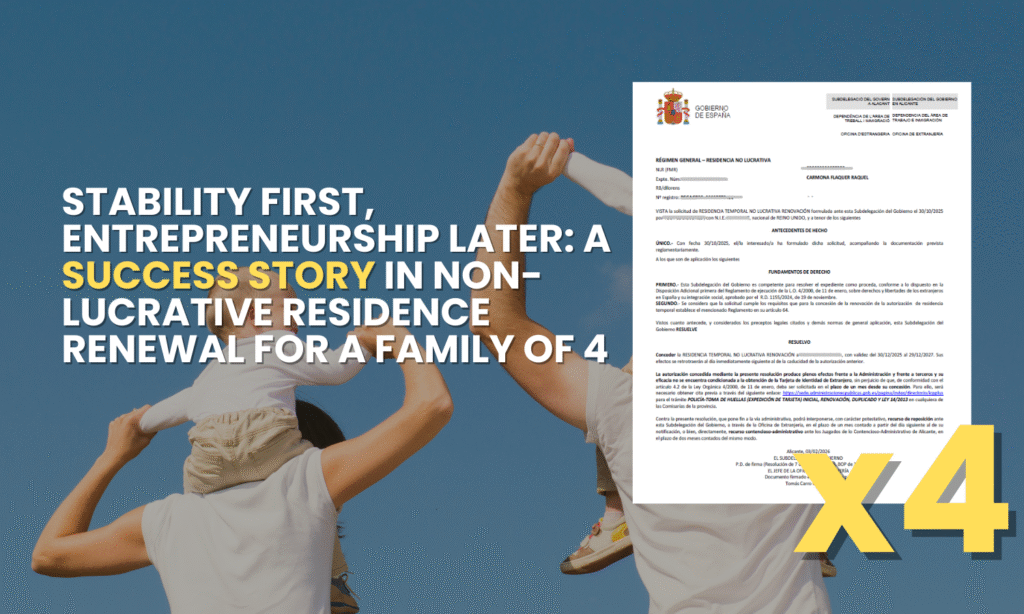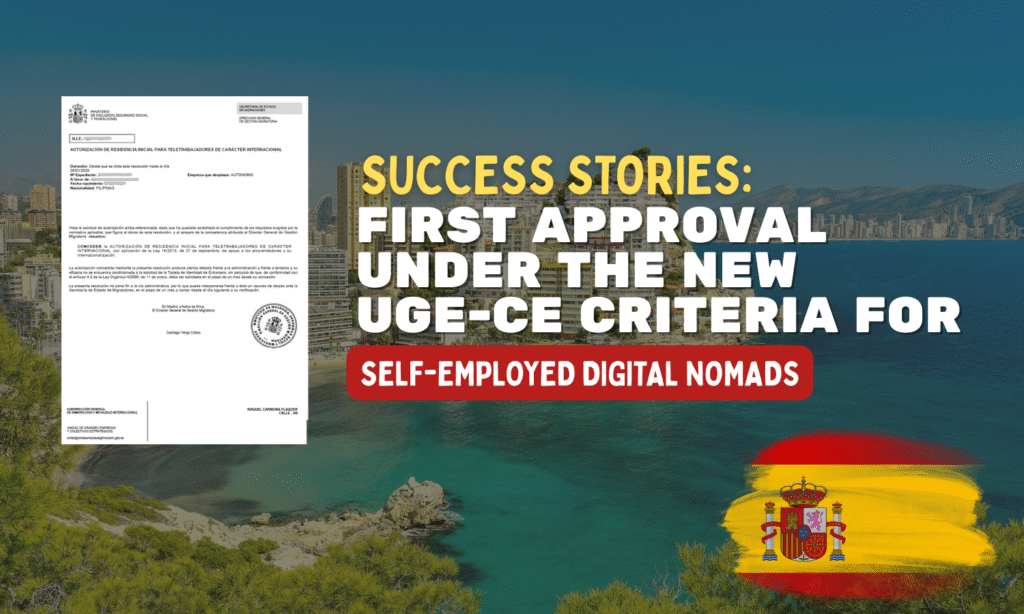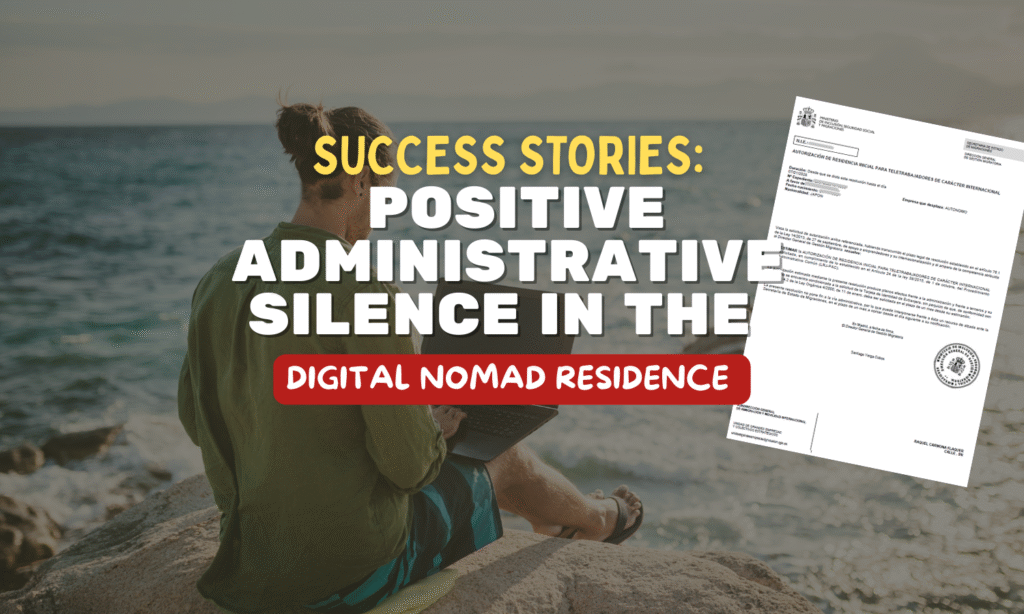Find out if non-profit residency allows you to work from Spain as a digital nomad.
In recent years, remote work has gone from being an exception to a routine practice for thousands of professionals around the world. Spain has become a very popular destination for those looking to combine quality of life with the ability to work from anywhere. However, for foreigners looking to settle in Spain under non-profit residency, a key question arises:
Is it legal to work remotely from Spain with a non-profit residency?
In this article, we’ll clear up any doubts and show you the best option for digital nomads who want to live and work legally in Spain.

What is a non-profit residency and why does it seem attractive to digital nomads?
Non-profit residency is a permit that allows you to live in Spain for one year, with the option to renew it for two-year periods. The main requirement is proof of sufficient funds (approximately €26,000 in a bank account) to support yourself without having to work in Spain, along with the purchase of private health insurance.
This permit usually attracts:
- Retired people looking to spend time in Spain.
- Those who want to enjoy a sabbatical year without working.
- Residents with passive income or sufficient resources who do not plan to engage in any economic activity in the country.
For this reason, many digital nomads and remote workers have tried this route to live in Spain while generating income from abroad.
The legal reality: What does the immigration law say about working with non-profit residency?
The Spanish legal framework clearly establishes that those who have non-profit residency can not :
- Work for Spanish companies.
- Carry out professional or business activities in Spain.
- Open businesses or branches within Spanish territory.
However, the law does not explicitly mention the possibility of remote working for companies or clients outside of Spain.
This lack of clear regulation has led to confusion. Some consulates have accepted applications for these types of cases, while others have rejected them, creating an uncertain outlook for applicants.
Can you legally work remotely with a non-profit residency?
According to the official interpretation and practice of most consulates, the answer is no .
The spirit of the non-profit permit is that the resident must not carry out any economic activity within Spain, relying exclusively on his or her own funds to live. Therefore, declaring that he or she will work from Spain—even for foreign clients—can lead to rejection of the application or even problems with future renewals.
What, then, is the alternative for digital nomads who want to work from Spain?
Fortunately, Spanish legislation has evolved and created an option specifically designed for digital nomads and remote workers:
The visa for digital nomads within the Startup Law
This new permit allows you to legally live and work in Spain with a contract or with clients outside the country, provided you meet certain requirements, such as:
- Minimum university education.
- That only 20% of the income comes from Spain.
- Quick process with the possibility of including family members.
This visa not only regularizes remote work activity but also offers tax and administrative advantages to facilitate residency and professional activity.

Conclusion
If you’re thinking of living in Spain and working from there as a digital nomad, a non-profit residency isn’t the right option for remote work.
Instead, the new visa for remote workers under the Startup Act is the recommended route to comply with the law and ensure safe and legal residency.
If you need personalized advice on which immigration permit is best for your situation and how to process your application, at MigratioLex we specialize in immigration and international mobility. Contact us to help you secure the ideal residency in Spain without legal risks.
Want to learn more? Read our full article on the new visa for digital nomads in Spain here and start your process with complete confidence.








